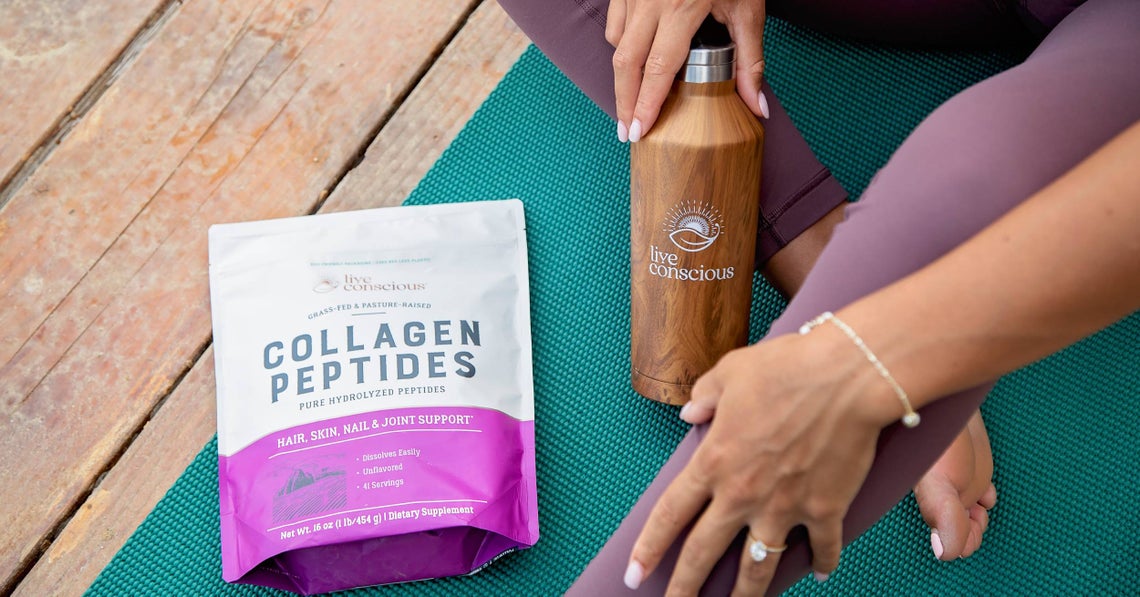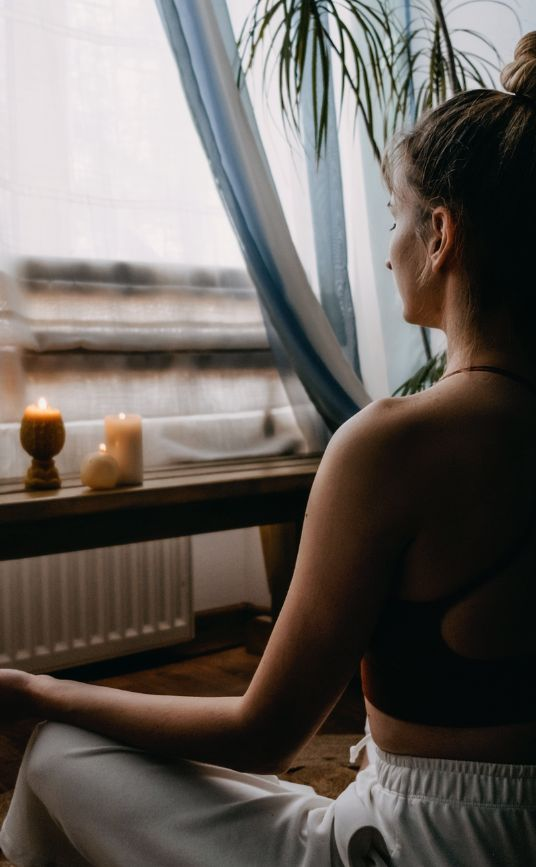Self-care may seem like a luxury, but it is really a necessity. It can be simple or extravagant, but we all need self-care of some kind to maintain wellness. The daily activities that nourish our mind and body provide a holistic foundation that gives us a sense of balance amidst a busy life.
There are many ways to approach self-care, but they all have one thing in common — putting yourself first. That doesn’t come naturally to all of us, but it really is essential to health and living a life that illuminates your true self.
Understanding Self-Care
Self-care is any activity that promotes a healthy mind and body, and you can create your own routine based on what you need. If you work from home or are extroverted, your self-care might be more social, such as grabbing a coffee with a group of friends. On the flip side, if your job takes a lot of social energy or you are introverted, you may enjoy some quiet time alone to decompress.
Self-care looks different for everyone, and there are plenty of approaches that can help you feel that self-love.
♦ Social self-care: Get a pedicure with your bestie, join a knitting club, or host a game night with your friends.
♦ Movement/exercise: Go for a hike, play tennis, jump on the trampoline with your kids, enjoy a leisurely walk, try an aerial yoga class, or join an adult kickball league.
♦ Relaxing self-care: Enjoy a cup of chamomile tea, soak in the bath, watch the clouds roll by, get a massage, or take a nap.
♦ Energizing and uplifting self-care: Sing in the shower, dance, or watch a show that makes you laugh.
♦ Beauty self-care: Create your own skin and hair masks, go for a spa day, incorporate foods into your diet that give you glowy skin, or start a beauty supplement routine.
♦ Intellectual self-care: Visit a museum, join a book club, take a foraging class, or learn about something you are interested in.
♦ Mind-body self-care: Try guided meditation, start a yoga practice, or learn some deep breathing techniques.
♦ Mental health self-care: Get into art or music therapy, journal regularly, or have a heart-to-heart with a good friend.
♦ Preventative and proactive self-care: Focus on specific issues such as soothing common digestive issues, promoting heart health, or keeping your hormones in balance.
While self-care certainly includes things like going to the doctor or dentist, try to find self-care practices that you really enjoy. It should be something you look forward to that makes you feel refreshed and rejuvenated.

Here are a few tips for creating your own self-care routine:
♦ Start with a goal. You may want to accomplish something that can be achieved by the daily practice of self-care, such as learning an instrument or running a 5k.
♦ Incorporate self-care into your professional life. In addition to personal self-care, you may also need self-care practices that support your work life. This can include going outside on breaks, taking a mental health day when necessary, wearing headphones during heavy focus times, or even decorating your workspace to be inspiring and uplifting.
♦ Rely on others (when possible). If you are a parent or caretaker for other people in your life, self-care practices are especially important. It may be more difficult for you to schedule time for yourself, so work with your partner, a friend, or a family member, or find a babysitter so you can make plans to accomplish your self-care activities.
♦ Be kind to yourself: Self-care should be fun and enjoyable, don’t put added guilt on yourself if you don’t always get there or if it isn’t going as well as planned. Be kind to yourself and start with small, simple things if necessary.
♦ Do nothing: Sometimes self-care is about not doing something. It can be as simple as taking a well-deserved break or trying to find a quiet moment in between tasks. If you just cooked dinner, maybe sit outside for a few minutes before you start doing the dishes. If you’ve had a hard day, leave it until tomorrow. Give yourself permission to take things off of your to-do list when you need to.
Designing a Morning Self-Care Routine
Setting the Tone for a Positive and Productive Day
When mornings are hectic or rushed, it can affect how you feel for the entire day. Coming from a place of centeredness right from the start can carry you through the day in a more positive state of mind. This can also help your focus be more aligned with what really matters so that you can avoid unnecessary distractions.
Here are a few tips for getting the day off to a good start:
♦ Don’t hit the snooze button over and over. This can actually make you feel more tired and lead to foggy thinking.
♦ Wake up 15-20 minutes early to give yourself time for self-care practices.
♦ Record your dreams. Write in a dream journal upon waking.
♦ Set an intention for the day or develop a daily affirmation practice.
♦ Get into nature, even if it is just stepping outside your door for a few minutes while you drink your coffee. Getting sunshine early in the morning can be energizing and help to set your circadian rhythm.
♦ Let the world wait. Don’t go straight to your phone. Resist checking your email or social media until after breakfast!
Practice Mindfulness for Mental Clarity and Focus
Bringing your awareness to the present moment can alter your mindset and help you feel calm and collected before starting your day. Regular meditation can help you to manage daily stress levels, increase patience, support focus, uplift mood, and benefit emotional regulation. Meditation is a great place to start, but if you have found that to be difficult, there are other ways to practice mindfulness.
♦ Start with 5 minutes. You can look for guided meditations on YouTube or use a subscription app like Headspace or Insight Timer.
♦ Make it a habit. Meditation only works if you give it time. Like every powerful transformation in life, we need to make it a habit before we start to experience the full benefits.
♦ Find what works for you. It may be easier if you have something to focus on, like a candle or an inspiring image. Or you may want to shut out distractions by wearing an eye mask or headphones.
♦ Keep it simple. While certain techniques and meditation methods can be helpful, mindfulness can be done anywhere, at any time, by tuning into your thoughts and your breath.
♦ Don’t put too much pressure on yourself. Perfection is not the goal; awareness is. If you just can’t get into it, read on; meditation isn’t the only way to keep your mind in balance.
Energize the Body (and Mind!) Through Physical Activity
Starting the day with a little movement gets the blood flowing to your brain, relaxes muscle tension, and can get those feel-good endorphins flowing. This can invigorate you and help keep you thinking clearly. Exercise can be a form of mindfulness, and it is easier for some people to find a meditative state through physical activity. It helps you focus on your breathing, and the benefits to the brain can be similar to meditation.
♦ Make it fun. Try a bike ride, go swimming, do a little jump rope to some good tunes, or hula hoop to get yourself moving in a way you look forward to.
♦ Make it quick. You don’t have to overcommit yourself. Ten to 15 minutes of a simple workout routine can energize you for the entire day. It also doesn’t have to be super rigorous to be effective (not everyone is ready to run a mile at 6 a.m.).
♦ Consider yoga. A daily yoga practice combines a mindfulness activity with exercise and helps to support your nervous system.
♦ Stretch. If you aren’t into yoga, you can just do some lazy stretching to wake up your joints and maintain flexibility.
♦ Make it a morning habit. Some people prefer to work out in the evening, which is great too, but a morning workout enhances focus and concentration throughout the day.

Don’t Skip Breakfast: Prioritize Nourishment Right from the Start
Follow up your mindfulness and exercise routine with a nourishing breakfast. This combo is the perfect triad for a great morning that sets you on the right path for the day. Skipping breakfast can lead to metabolism and blood sugar issues and can put a strain on cardiovascular health. Giving your body and mind the fuel it needs will help you stay energized and keep your mood steady.
♦ Make it a priority. Your body and brain will feel so good if you are getting the proper nutrients. Eating breakfast supports digestive health, mental wellness, focus, and concentration and provides essential nutrients that promote overall vitality.
♦ Make it your ritual. Savor each sip of your coffee, tea, mushroom brew, or fresh pressed juice. Make this a part of a mindfulness practice, or do some journaling while enjoying it.
♦ Add protein. Make sure you get enough protein and healthy fats for sustained energy and to fuel your brain.
♦ Add supplements. Get in the habit of taking your morning supplements along with breakfast, or incorporate them into your morning meal. B12, CoQ10, and functional mushrooms are our top choices.
♦ Try cutting down on caffeine. This can set your system into overdrive right from the start. Limit your coffee intake, try coffee alternatives, or switch to less caffeinated drinks, such as green tea.
♦ Support your gut health. Find ways to support your gut health every morning. Show your digestive system some extra love by eating a generous amount of fiber along with yogurt, kefir, and fermented foods, or add prebiotics and probiotics to your smoothie or morning drink.
♦ Support your beauty with breakfast. Get in the habit of having a smoothie with collagen and other superfoods that nourish skin and hair.
Crafting a Nighttime Self-Care Routine
Unwind and Prepare for a Restful Sleep
This is the time to let go of the day. Let yourself step into another state of mind that will help you begin to fully relax. Good sleep sometimes takes a little preparation but can help you thrive in other areas of your life. By incorporating small, daily changes to your nightly routine, you can support the health of your heart, brain, hormones, and immune system.
♦ Go for a walk. Going for a walk can clear your mind. Something as simple as watching the sunset can release “happy hormones” and help you relax after a long day.
♦ Take a screen break. Read a book, listen to some music, or a podcast to encourage relaxation. Screen time before bed can make it harder for you to go to sleep and can interfere with sleep quality.
♦ Avoid caffeinated drinks later in the day. Have a cup of herbal tea or golden milk instead.
♦ Take your nighttime supplements. Magnesium, ashwagandha, and omega-3s are a few of our favorites that can help with relaxation and can promote quality sleep.
♦ Eat a satisfying dinner that isn’t too heavy but makes you feel content and nourished.
♦ Check-in with others. Check in with your partner, family, or roommates. How is everyone doing? How was everyone’s day? Spread feelings of care for each other throughout the household to generate good vibes.
♦ Lower the lighting after sunset to help set your circadian rhythm.
♦ Express your feelings. If you are feeling emotional about something, journal about it to express and process the emotions and free your mind from overthinking.

Relaxation Techniques for Everyday Stress Relief
Many self-care practices center around relaxation. In our busy, fast-paced lives, this can be one of the most important things you do. Learning to tap into the relaxation response in your body can take time, but it can have tremendous benefits to your long-term health and mental well-being.
♦ Be consistent. Have an evening routine that is focused on relaxation. The more you follow this routine, the more quickly your body and mind will start to shift into a state of relaxation.
♦ Get a massage. While it’s great to visit a massage therapist regularly (once a month is a great goal), you can learn some self-massage techniques or use an electric massager for daily relaxation.
♦ Learn about progressive relaxation techniques. These involve tightening certain muscle groups throughout the body and then relaxing them. This releases built-up tension that we hold in our muscles.
♦ Explore yin yoga or create your own combination of asanas that have relaxing effects.
♦ Try biofeedback. At-home biofeedback devices can help you encourage relaxation throughout your body and mind. Learn to consciously affect your brainwaves and heart rate and actively reduce muscle tension.
Skincare Rituals for Deep Cleansing and Rejuvenation
A daily skincare ritual is a deep form of self-love. Our skin is a reflection of our inner self, and there are many ways to care for it. It can involve external skin treatments, but we can also nourish our skin from the inside out. Your routine doesn’t have to be over the top, but be consistent. Choose skincare products that you will look forward to using and that make your skin feel luxuriant.
♦ Customize it. Create a skincare regimen based on your needs and skincare goals. Have a foundational routine for most nights, and then add special skin treatments once or twice a week.
♦ Start with the basics. At the very least, ensure you have a great cleanser and moisturizer that works well with your skin type. You can add a toner, serum, eye cream, mask, spot treatment, and facial oils as desired.
♦ Get organized. Do you have old products you never use, or is it hard to find what you need? Take some time to declutter your beauty space to make it a more enjoyable experience.
♦ Give yourself a whole-body treatment. Try a full body oil massage, rub down with body butter, or do a salt or sugar scrub. This will relax you and keep your skin soft and supple.
♦ Do some form of facial massage regularly. Use a jade roller or a Gua Sha tool to keep your skin looking young and healthy. This will help with elasticity and circulation and reduce the appearance of fine lines.
♦ Pamper your hands! They do a lot for you, so give them a little love by doing a regular exfoliation treatment, try a wax dip, and keep them happily moisturized.
♦ Don’t forget to take care of your scalp. Crown care is the key to strong, beautiful hair.
♦ Nourish beauty from the inside out by incorporating collagen peptides into your evening routine. Stir it into a cup of decaf chai, your favorite juice, or peppermint tea for a simple way to support your hair, skin, and nails.

Create a Peaceful Environment for Optimal Rest
Creating a cozy atmosphere for slumber can be a transformative form of self-care. The placement of your bed, the color of your room, and different kinds of lighting all influence your quality of sleep. Sensory comforts like aromatherapy and soft textures can help lull your mind into dreamland. Make it a satisfying and comforting experience to crawl into bed at the end of a long day so you can experience deep relaxation and blissful sleep.
♦ Clean your room. Disorganized spaces can contribute to higher levels of everyday stress. Make it a habit to keep your space tidy, so you experience peacefulness at bedtime.
♦ Keep a cool temperature. People tend to sleep better in slightly cooler temps.
♦ Adjust the lighting. Put a lamp with a dimmer or a soft light bulb in your room so you can have a serene ambiance at any time.
♦ Eliminate nighttime junk light. Use special blackout stickers designed to reduce lights emitted from chargers, computer monitors, TVs, and other devices that glow even when they are off.
♦ Find what brings you a sense of peace. Indulge your own special form of comfort. Put on some cozy socks, slip into your favorite purple pajamas, use an eye mask, splurge on silk sheets, get a white-noise machine, pile on the blankets, or whatever makes your snuggly heart happy.
Our Top 20 Self-Care Practices
♦ Learn to cook one of your favorite comfort foods
♦ Have a daily cup of herbal tea
♦ Go for a hike
♦ Have an at-home spa day
♦ Join a yoga, breathwork, or meditation class
♦ Start a supplement routine (and stick to it!)
♦ Take a social media break
♦ Make a vision board
♦ Sing and dance
♦ Spend time grounding/earthing
♦ Try an herbal facial steam
♦ Have a red-light therapy session
♦ Watch the sunset
♦ Learn an instrument
♦ Take a nap
♦ Start a gratitude journal
♦ Stretch while listening to your favorite podcast
♦ Try a manifestation practice
♦ Start a garden or a houseplant collection
♦ Go stargazing

How to Maintain Self-Care Consistency
It’s not always easy to maintain a routine, even when it is good for you. Putting yourself first may be challenging, especially if you are the people-pleasing type or have a family to care for. It may be a process to get into a routine that focuses on the right things and gives you what you need to get through your day in the most positive and productive way.
Common Challenges:
♦ Life is busy: Sometimes, it can seem like there just isn’t the opportunity to relax or do something that may seem less important at the time. You’ve got to make space and prioritize your needs!
♦ Mental barriers: Sometimes, we have ignored our needs for so long that we may forget what we actually enjoy. You may need to try new things or get back into old hobbies before you find what fits your current needs and brings you joy.
♦ Lack of support: Those around us may not understand our needs or may even be resistant to changes. It may be necessary to create some firm boundaries and have discussions with family members about taking time for yourself.
♦ Lack of motivation or feelings of overwhelm: It may be hard to find the ambition to start new habits. This can be especially difficult if you have already reached a point of feeling overwhelmed, making it extra challenging to accomplish anything else.
♦ Guilt or feelings of unworthiness: Self-care may seem selfish when so many other important things need to be done. It can be hard to let go of life-long feelings of unworthiness.
Tips and Solutions:
♦ Start small. Take it one step at a time and add things in gradually.
♦ Set reminders on your phone, put it on your calendar, or stick a Post-it to your mirror with your goals or a self-care plan.
♦ Have a self-care buddy. Check-in with a friend and encourage them to stick to their self-care goals; they can do the same for you.
♦ Be flexible. You don’t have to stick to a rigid routine or schedule. Leave room to be spontaneous. It’s okay to cancel plans if you feel like staying in and just want to curl up and watch a movie.
♦ Make a list of all the things you do for others (this can include tasks at work and things like doing dishes and paying bills). Now, make a list of all the things you do for yourself and see how they compare. Hopefully, this will put things into perspective and take away any guilt you may feel from taking time for self-care.
♦ Take the in-between time for yourself. Have a go-to plan for when you find a few minutes to yourself in the day. Do you journal? Do you draw or paint? Or would you rather just lay on the floor and let your body relax? Make those tiny moments all about you.
♦ Ask for help. If you are struggling to prioritize yourself, there may be other issues that need to be addressed. Talk with your partner, a friend, or a counselor about what roadblocks you are running into.
Awaken to Wellness
Whether it is a meditation practice, a cup of tea, or an entire routine, self-care is a form of generosity that only we can give to ourselves. It can be easy to overlook the importance of simple, daily habits that add up to true health, but these are the moments that guide us into a future of wellness. At Live Conscious®, our mission is to empower others to nourish themselves mentally and physically. We hope you will give yourself the gift of well-being through self-care practices that bring you joy and a life filled with self-love and self-kindness.










